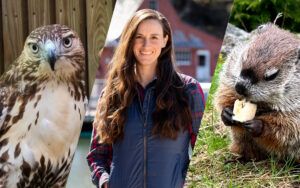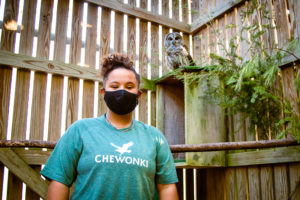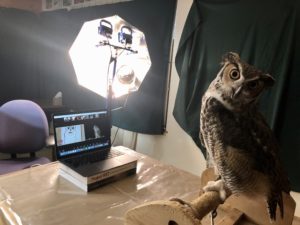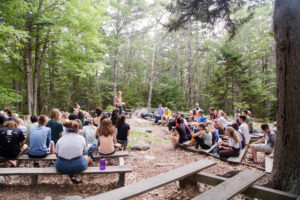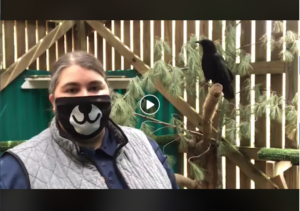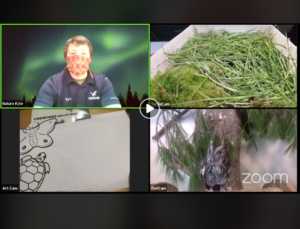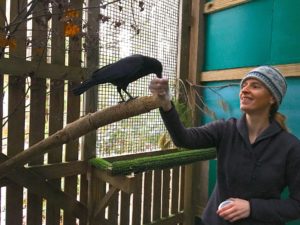Chapin Hall, famous for its full-sized fin whale skeleton, welcomed another unusual display last month: Chewonki’s new portable planetarium.
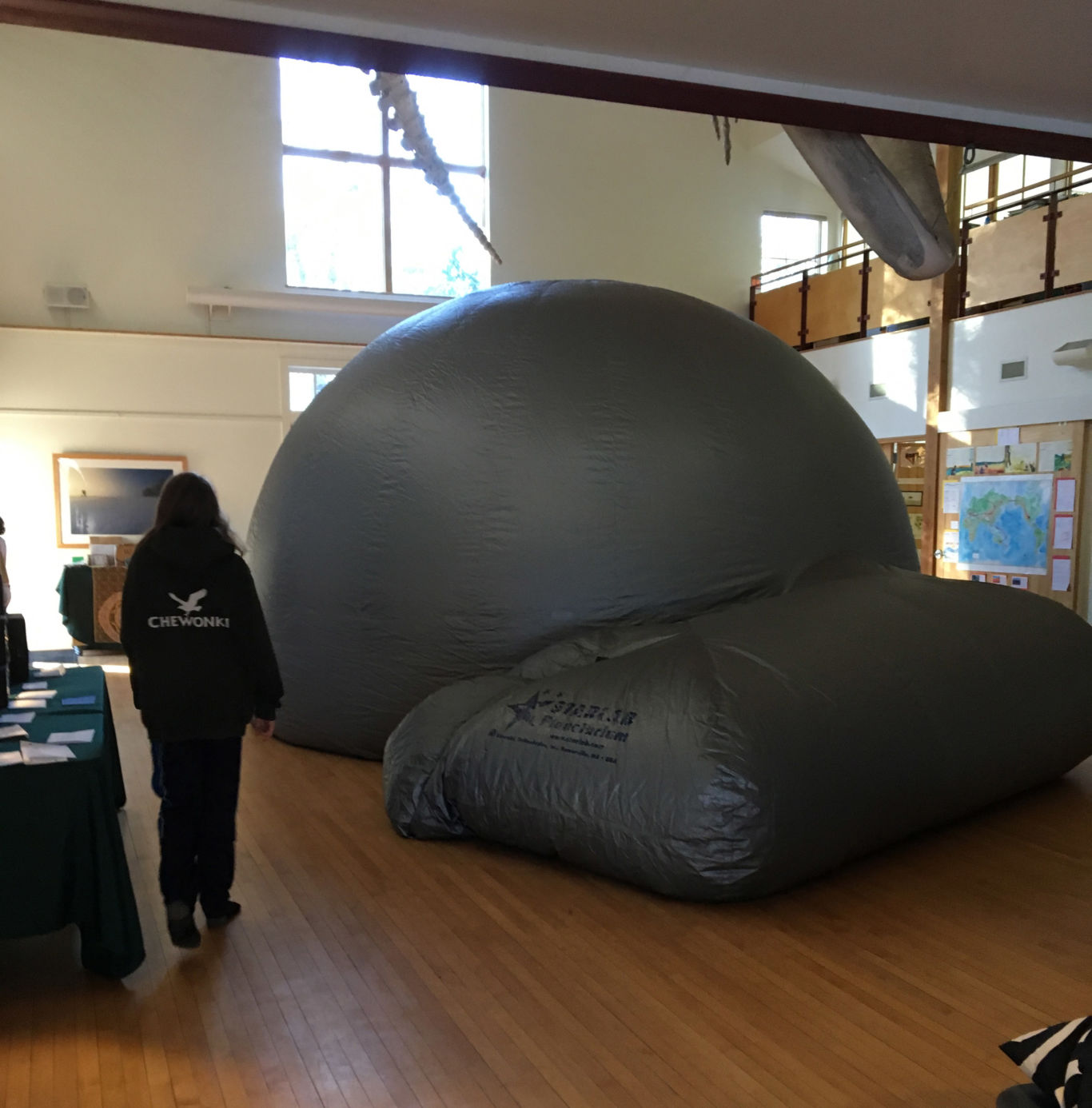
According to Chewonki Traveling History Program Coordinator Emma Balazs, “This opens up an entirely new area of study for us. We are incredibly excited.”
The planetarium is a gift from the Museum of Science, Boston. Mike Adams, manager of the museum’s traveling programs, had met Balazs and her team several years ago at a conference of environmental educators. Adams took note of Chewonki, and when he found himself with an extra Starlab (the museum has several), he was thoughtful enough to offer it to us.
“The staff from the Museum of Science Traveling Programs have known the team from Chewonki’s Traveling Natural History Program for many years,” Adams says. “We’ve always been impressed by their innovative programming, the quality of their teaching, and the passion of their educators. We’re excited to donate one of our portable planetariums to this great organization because it will give new opportunities for the students and families of Maine to explore the night sky.”
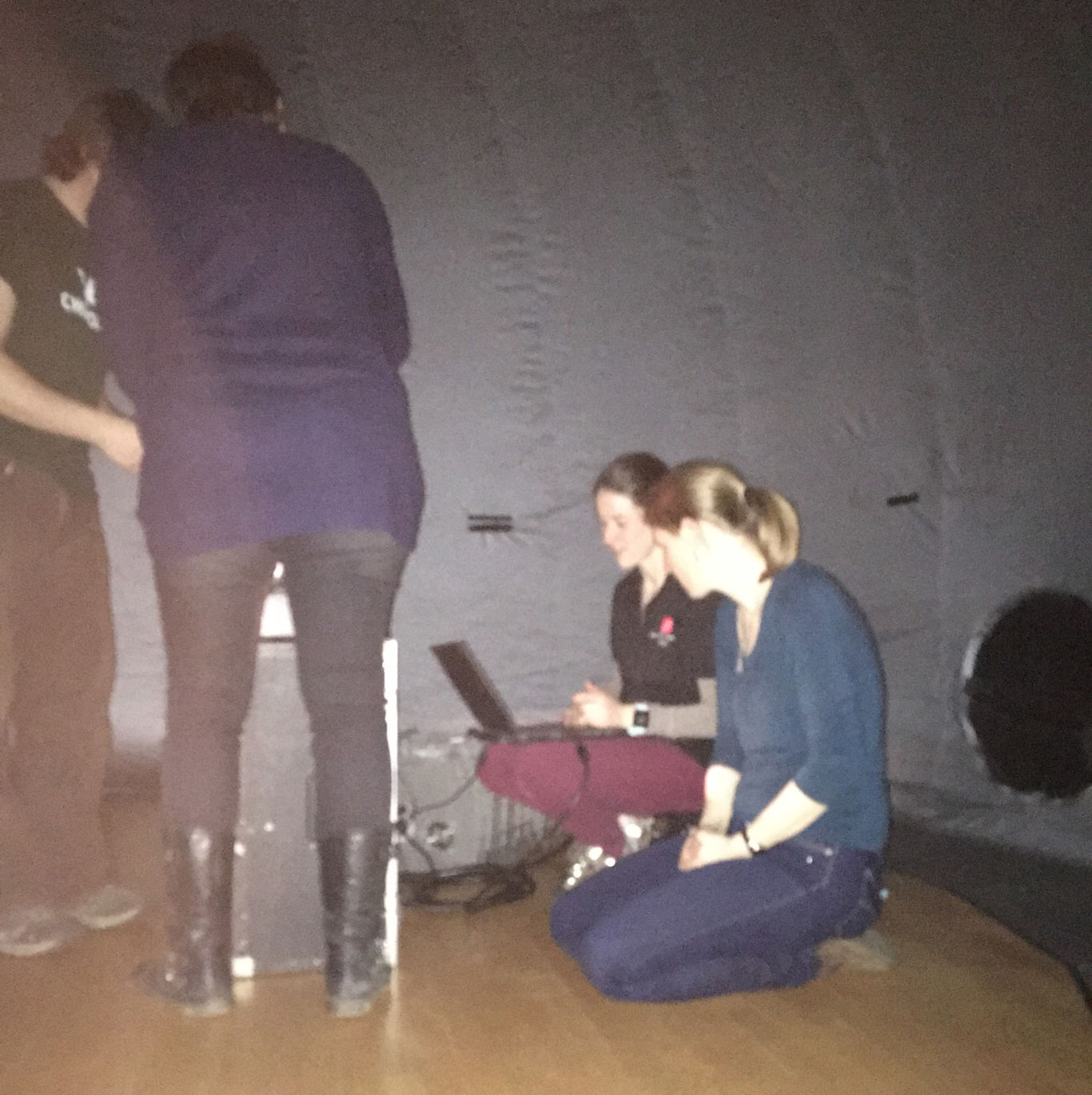
Chewonki Traveling Natural History Program staff were a-twitter this week as Megan Liggett, another Museum of Science educator, were on Chewonki Neck to teach them how to inflate it and use a special device to project stars and planets, as they appear in Maine, onto the inside of the dome (it can be adjusted to show the sky visible from other locations). Liggett then joined our staff for a visit to Woolwich Central School (about 15 minutes away), where she gave a Starlab presentation to a class of second-graders and then observed a Chewonki team giving an “Animal Adaptations” lesson to the kindergarten. “It was a really nice exchange,” says Balazs.
Balazs is eager to incorporate the Starlab into Chewonki programs but determined to proceed slowly and thoughtfully. “We learned a lot from seeing the Museum of Science staff use it, and now we know how to set it up,” she says. “But this is a whole new tool for us and we want to develop our own curriculum around it.” She hopes to take the planetarium on the road for programs at Maine libraries this summer, especially because the national summer reading theme for libraries happens to be “A Universe of Stories,” just right for young stargazers.
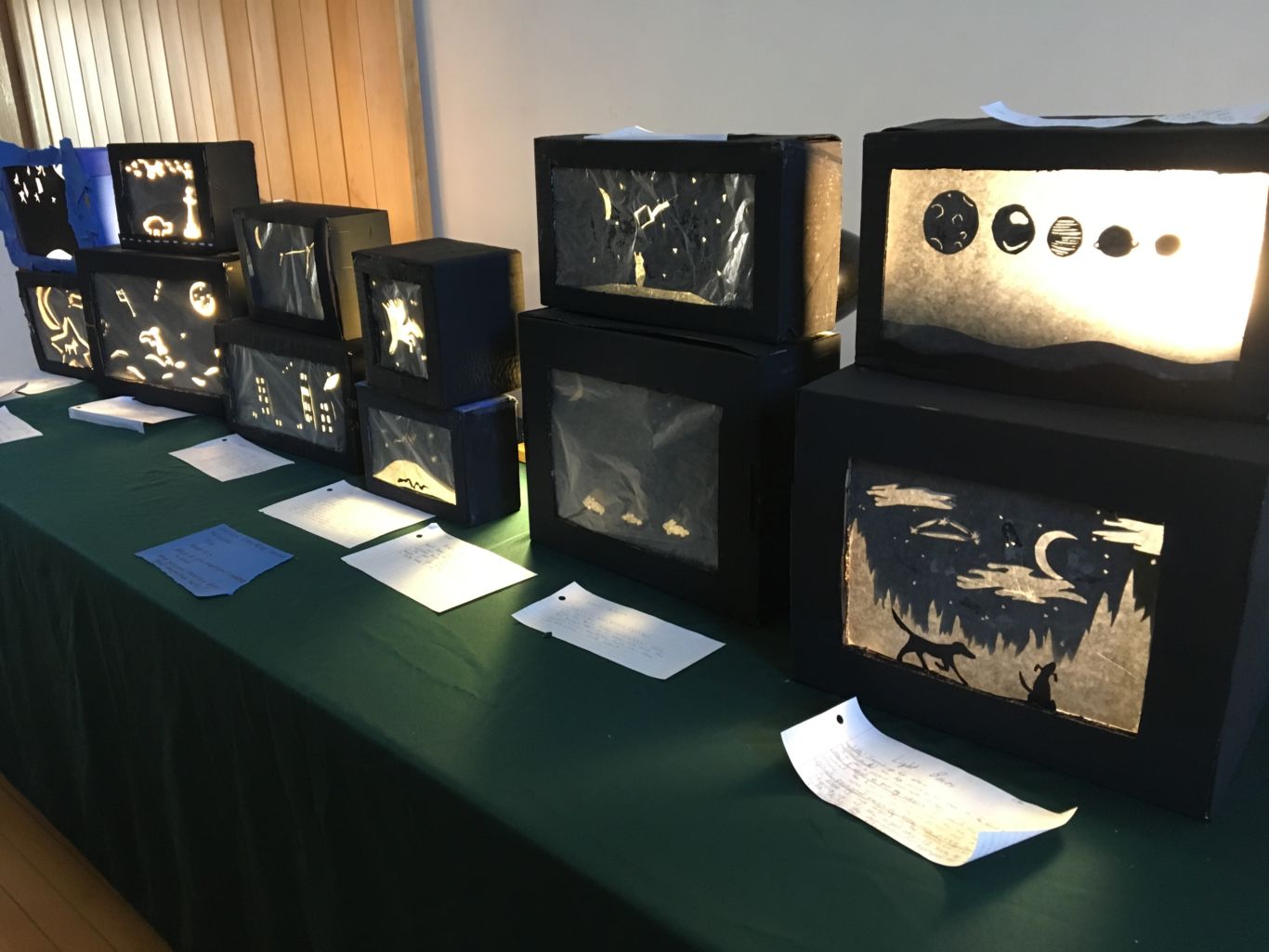
“Astronomy is one of the most accessible of all of the sciences because everyone can observe the sky and explore how the wonders of the universe actually work,” says Adams of the Museum of Science. “It’s also so much fun! We know our friends at Chewonki will be able to use this equipment to excite and inspire everyone who enters its magical dome.”
Many thanks to the Museum of Science, Boston, for opening up a new universe of learning for Chewonki participants and staff.

